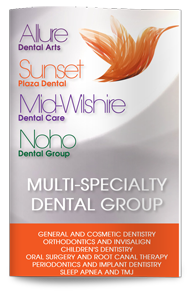Saliva for Protecting Against Cavities
 You may not give too much thought to the saliva in your mouth, but this slippery substance has a pretty important job for your general and oral health. Not only does it kick-start the digestive process, but it also helps protect your teeth. Saliva is actually mostly water, but the water is combined with compounds called salivary mucins. Salivary mucins give saliva its gel-like consistency to keep it slippery and elastic. However, they also keep cavity-causing bacteria under control, according to a recent conducted at Harvard University.
You may not give too much thought to the saliva in your mouth, but this slippery substance has a pretty important job for your general and oral health. Not only does it kick-start the digestive process, but it also helps protect your teeth. Saliva is actually mostly water, but the water is combined with compounds called salivary mucins. Salivary mucins give saliva its gel-like consistency to keep it slippery and elastic. However, they also keep cavity-causing bacteria under control, according to a recent conducted at Harvard University.
Typically, tooth decay prevention focused on external treatments, such as fluoride applications and dental sealants. Fluoride treatments keep enamel hard, while dental sealants create a physical barrier between the surface of the tooth and oral bacteria. However, this study demonstrates that we may just be able to harness our body’s own natural defenses against cavities.
S. mutans, the bacteria responsible for cavities, produce sticky polymers to form plaque, a biofilm that adheres to the teeth. The bacteria are then protected by this biofilm as they ingest particles from the foods you eat and release acidic byproducts. These acids attack the enamel of the tooth, resulting in cavities. Salivary mucins work by keeping S. mutans suspended, which reduces their ability to form plaque. If S. mutans are unable to attach to the surface of the teeth, it cannot cause cavities.
Dry mouth is a common risk factor for developing cavities. Therefore, if you suffer from dry mouth, a prescription saliva replacement process may be needed. You can also take steps to stimulate your own saliva production by chewing sugar-free gum and staying well-hydrated. Call us today to learn more or to schedule an appointment with our expert in root canal in Los Angeles.
Back to Blog





